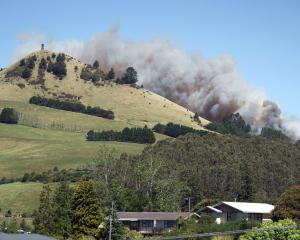Southern dairy farmers are not getting much sympathy from the Otago Regional Council, which says this winter's wet weather is not exceptional.
Farmers have been told they should have sufficient dairy effluent storage for such events.
The council has yet to begin farm inspections to ensure farmers are adhering to their discharge consents.
But resource management director Selva Selvarajah said farmers had plenty of warning about the level of storage required, and should have acted by now.
A month of wet, cold conditions which has coincided with the start of calving has created problems for southern dairy farmers.
Their paddocks have become bogs, and cows and calves are dying in greater numbers.
Ministry of Agriculture and Forestry investigator Peter Presland said farmers were coping well in trying conditions.
Farmers can not irrigate dairy shed effluent on to saturated paddocks or it will run off into waterways.
Some spoken to said they hoped the council would look sympathetically at their plight and the condition of their farms, although there was no indication effluent was being irrigated.
Dr Selvarajah said the council recommended farmers have three months effluent storage capacity, and he was aware some farmers had built storage ponds.
"If farmers had installed three months' storage, I can't see why they would struggle now."
Dry weather in summer and autumn should have allowed them to empty their ponds ahead of the new season.
Farmers have described the current weather pattern - a mix of cold temperatures and rain with little drying - as exceptional, but Dr Selvarajah said such conditions were to be expected in South Otago and West Otago, and farmers should plan for saturated soils.
Mr Presland said he had not seen an increase in animal welfare concerns due to the difficult conditions, but everyone would like to see an improvement in the weather to reduce stress on animals.
The key was to ensure stock was well fed, allowing animals to generate heat and energy.
Farmers were doing that, even if it meant sacrificing paddocks.
He said it was challenging for farmers when they had no dry land on which to stand animals, and they could be criticised for having stock in mud.
"They have nowhere to put them. The best thing they can do is to keep them warm by feeding them."













